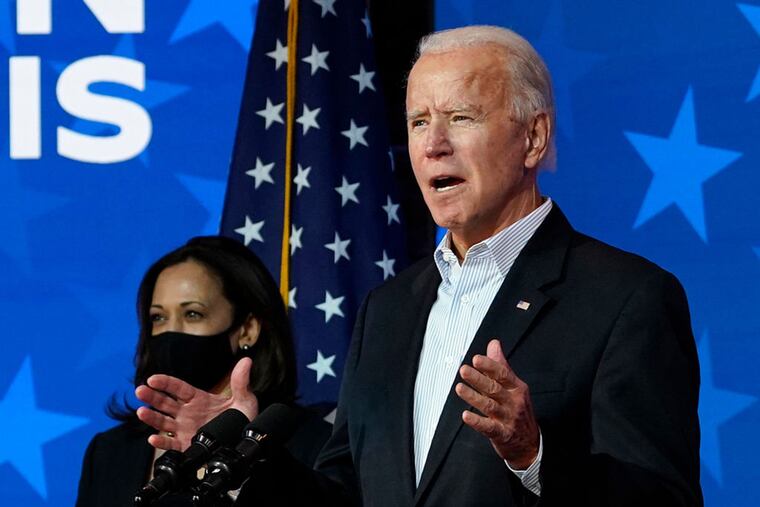Joe Biden to extend federal eviction moratorium through March on first day as president
Biden plans to sign an executive order extending a freeze on evictions nationwide through the end of March, a move aimed at shielding millions of renters struggling during the pandemic.

WASHINGTON — On his first day as president, Joe Biden plans to sign an executive order extending a freeze on evictions nationwide through the end of March, a move aimed at shielding millions of renters struggling during the pandemic.
Biden officials said the new president will on Wednesday approve a raft of executive actions to address issues ranging from immigration to the public health crisis caused by the pandemic.
As part of this Day One action, Biden is expected to sign orders to extend the eviction moratorium and to pause student loan interest payments, while pushing Congress to approve the $1.9 trillion economic relief plan he unveiled last week.
In December, Congress approved a one-month extension of a federal eviction moratorium after President Donald Trump unilaterally extended it this summer. Without further action, that moratorium is set to expire at the end of January, putting between 30 million and 40 million American renters at risk of losing their homes during the winter, according to estimates by the National Low Income Housing Coalition, a nonprofit group.
Biden officials will also ask federal agencies to extend their moratoriums on foreclosures of federally guaranteed mortgages.
» READ MORE: Welcome to the presidency, Joe Biden. Please solve all these crises.
Housing advocates have called for the eviction moratorium to be both extended and broadened. The Eviction Lab at Princeton University found that there have been more than 200,000 evictions during the pandemic, including tens of thousands with the moratorium in place. Diane Yentel, president and chief executive of the National Low Income Housing Coalition, said that seniors, immigrants and other vulnerable groups are often unaware of the federal protection, and that landlords have found other ways to evict Americans despite the pandemic.
"Extending it is good and important, but on its own insufficient. The existing moratorium is flawed, and many tenants are being evicted in spite of the protections," Yentel said, citing a lack of enforcement of penalties for unlawful evictions. "It needs to be not only extended, but strengthened and enforced."
Biden has also released an approximately $1.9 trillion economic relief plan that he is prodding Congress to pass; it includes additional housing assistance. But it will take time to pass that legislation and get that money — as well as the additional rental assistance funding approved by Congress in December — out the door to local governments. That means protections from the moratorium will need to be extended beyond March, said Paul Williams, a former policy administrator with Chicago Department of Housing.c
Tara Raghuveer, a housing organizer with KC Tenants in Kansas City, Mo., said despite the moratorium, in January alone, about 700 evictions have been scheduled in Jackson County, where Kansas City is located. More than 600 are scheduled for February.
"The existing CDC moratorium is not ending evictions, particularly in states where there are not stronger protections," Raghuveer said. "Because Biden is simply extending the current moratorium, courts like ours in Missouri will continue to force people to the streets."
Biden officials emphasized that the Day One executive orders represent only the beginning of the president-elect’s actions. Biden spokeswoman Jen Psaki said the administration is approving far more Day One executive actions than his predecessors. “Biden will continue to take action over the next 10 days — and over his entire time in office,” Psaki said in a statement. “In the coming days and weeks we will be announcing additional executive actions.”
Biden has also called on Congress to extend the eviction and foreclosure moratorium through September through legislation.
The incoming president will also ask the Education Department to consider extending a freeze on both interest and principal payments for federal student loans until Sept. 30. Congress first approved that freeze when the pandemic took hold in March, and Trump extended it via executive action in July.
Sens. Chuck Schumer, D-N.Y., and Elizabeth Warren, D-Mass., have called on Biden to cancel as much as $50,000 in student debt without legislation from Congress, an approach Biden has so far rejected. Biden has asked Congress to approve up to $10,000 in student loan forgiveness, in line with his 2020 presidential platform, although this plan was not included in last week’s $1.9 trillion stimulus proposal.